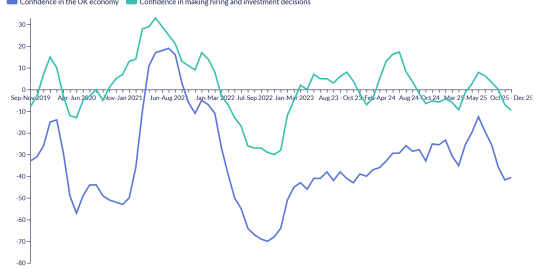Young are the least likely to feel they are in the right job
Desire for job enjoyment causes ërecession re-thinkí and time bomb for employers
Young workers most likely to jump ship when economy improves
A significant proportion of the UK population do not feel fulfilled in their jobs, according to research by SHL, the global leader in talent assessment solutions in the workplace. The study of more than 1,000 UK adults found that more than one in five (22%) rarely or never feel fulfilled at work and this could amount to almost six million people across the UK.
The problem is even greater among younger members of the workforce, with a quarter of those between 16 and 35 saying they rarely or never feel fulfilled at work. Similarly, 23% of this age group says they do not feel they are in the right job for them, compared to 17% of the general population.
This lack of job satisfaction could be a time bomb for employers, with almost a third (32%) of workers questioned saying they have re-evaluated the type of organisation for which they work as a result of the recession and a quarter saying they are considering a change of career when the economy improves. Top reasons for what is being termed the ërecession re-thinkí include the need for greater job security (19%), the desire to enjoy work (15%) and the desire to work for an organisation with similar values (9%).
The issue is even greater among younger members of the workforce, with close to half (43%) of those under 35 saying they have re-evaluated the kind of organisation they want to work for and more than a third (37%) saying they are considering a change of career when the economy improves. The majority say this is because they want more job security (31%) and to find a job that they enjoy (24%).
Workers in retail, leisure and catering industries were found to have the least job satisfaction, with 31% saying they rarely or never feel fulfilled in their job. This is followed by the public sector, where 28% say this is the case. Those in healthcare and education were found to be the most fulfilled with 59% and 51% respectively saying they are fulfilled most or all of the time, compared to a national average of 44%.
David Leigh, CEO of SHL, said: ìLack of job fulfilment and job fit will have an impact on employee engagement, motivation and therefore productivity and this is not something that employers can afford in the current economic climate. It is vital that employers maximise their talent at this time which means having the right people in the right roles, where they feel fulfilled and are able to work to the best ability. Without this, organisations will struggle to retain employees once the economy picks up and this will have significant consequences for their success in the long term.
ìTo help ensure they have the right people in the right roles, employers need to have an understanding of the competencies required and assess and develop employees against these, both at the recruitment stage and throughout their time with the company. Doing this increases the chances that employees will perform well, benefiting both themselves and the business. Regular engagement and motivation surveys are also useful to highlight any problem areas, and address these before itís too late,î concludes Leigh.
Almost six million UK workers failing to find job fulfilment

A significant proportion of the UK population do not feel fulfilled in their jobs, according to research by SHL




